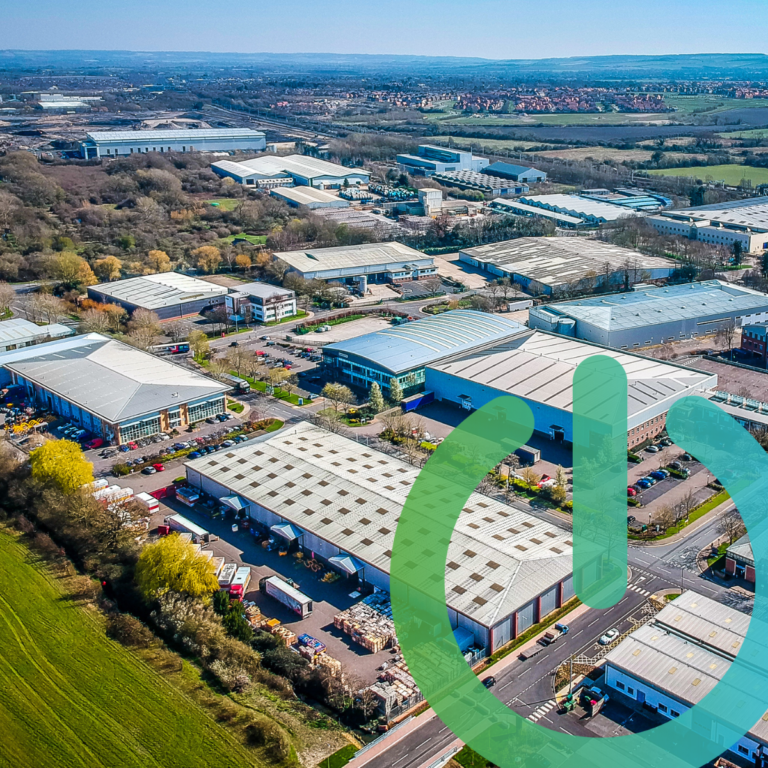Midlands Net Zero Hub has awarded grant funding to five local authorities in the Midlands to develop decarbonisation plans for industrial zones in their areas.
The Industrial Zones Decarbonisation Project was created by the Hub and funded by the Department for Energy Security and Net Zero to support councils in the Midlands to develop decarbonisation plans for industrial and commercial sites. The funding will be used by the local authorities to investigate opportunities to reduce carbon emissions and overcome barriers to getting projects moving.
The projects awarded funding are as follows.
Boston Borough Council
- The Boston Cluster Initiative is being driven by the UK Fresh Produce Network to create a coordinated foundation to streamline cluster members’ efforts.
- The project seeks to deliver an estate-wide approach by pooling investments in renewable energy generation, EV charging infrastructure, decarbonisation of heat, peer-to-peer trading, battery storage with a microgrid approach, and energy-efficiency measures.
- As part of the project, the Boston Cluster Initiative has proposed introducing an alternative energy from waste centre as part of a localised heat network to provide a reliable, cost-effective, and sustainable energy supply.
- The project is located on the Marsh Lane estate, spanning over 100 acres either side of the River Haven.
Dudley Metropolitan Council
- Dudley Metropolitan Council will produce a roadmap for decarbonisation focussing on their identified industrial zone as part of the wider ‘Net Zero Neighbourhoods’ programme and in line with their local net zero targets.
- The study will focus on the Albion Works and Moor Street industrial estate with the potential to extend to the Leys Road industrial estate.
- The project covers industries such as wholesale and manufacture of construction materials, waste and scrap, steel drums, and similar containers, zinc die casting and plastic moulding, tool and press works, wholesale bakery manufacturing, and MOT vehicle testing.
- At least five opportunities will be identified, and the carbon saving associated with each will be quantified.
- Each opportunity will be evaluated on cost and deliverability. This will enable the creation of an impact metric expressed in £/CO2eq as well as the creation of social, economic, and environmental metrics for each decarbonisation activity identified in the roadmap.
Redditch Borough Council
- This project seeks to deliver a whole site approach, supporting the objectives of the Worcestershire Energy Strategy.
- The project looks to maximise opportunities while addressing key challenges and constraints for decarbonising the industrial and commercial sectors, which can then be replicated throughout the county.
- Notable opportunities within the site include the sale and redevelopment plans for some of the nearby land which has created space with the site.
- Some considerations that will be evaluated under the project are the introduction of an energy centre for a heat network or a vehicle refuelling hub to support the logistics companies on the site who will all decarbonise their fleet in the coming years.
Staffordshire County Council
- This project focusses on The Midlands Growth Corridor (A50/500) and looks to enhance established partnerships while building new ones between the public sector, academia, and major businesses along the corridor.
- The project aims to catalyse innovation and further accelerate the development of clean energy and new technology, including hydrogen.
- The project will produce a coordinated innovation programme to develop a Zero Emission Valley to support the decarbonisation of the corridor, meeting net zero and Environmental, Social, and Governance (ESG) targets of both the private and public sector.
- Further economic analysis will be developed through the project to understand the potential value and cost of delivery in a range of areas. These include developing clean fuel supplies for industrial processes, transitioning freight from road to rail, developing of a Regional Supplier Park, creating ‘Innovation Factories’, and improving efficiency through the use of smart factory technology for businesses across the corridor.
Worcester City Council
- This project evaluates the city of Worcester as one complete cluster. The focus will be on the industrial manufacturing sector which is spread across the relatively small urban boundary of the city.
- The study will work closely with identified partners to develop an action plan and project pipeline for place-based solutions facilitating and accelerating the decarbonisation of industry in Worcester.
- An outline demonstrating an assessment of all possible technological options will be created through the project. This will support the project partners to achieve decarbonisation of a number of the industrial businesses within the zone. It will also provide high-level costs and recommendations to facilitate and encourage implementation of the identified opportunities.
Jack Hayhoe, Head of Net Zero Programmes at Midlands Net Zero Hub, said: “I would like to congratulate the successful applicants of the Industrial Zones Decarbonisation Project. We know that industry can be a challenging sector to decarbonise, so we are pleased to support local authorities in the region to partner with organisations to develop strategies to reach net zero. We look forward to seeing the results of these projects, which can be used as a blueprint for other industrial and commercial zones in the Midlands.”
The Midlands Net Zero Hub is helping all local authorities in the Midlands to make their net zero projects happen. Email the team to find out how we can support your council.

